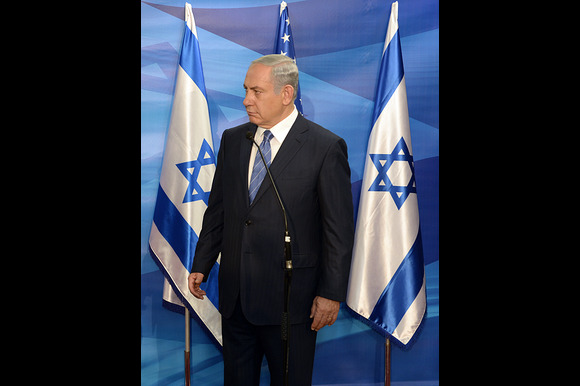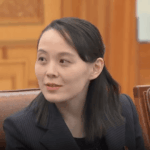Israeli Prime Minister Benjamin Netanyahu has launched a fierce verbal attack on Australian Prime Minister Anthony Albanese, accusing him of betraying Israel and abandoning the country’s Jewish community, following days of escalating diplomatic tensions between the two nations.
In a strongly worded statement on Tuesday, Netanyahu declared that “history will remember Anthony Albanese for what he is: a weak politician.” His comments come in the wake of Australia’s recent decision to join the United Kingdom, France, and Canada in officially recognising a Palestinian state, a move that has triggered a series of retaliatory steps and harsh rhetoric from Israel.
The diplomatic spat intensified on Monday when Australia barred Simcha Rothman, a far-right member of Netanyahu’s governing coalition, from entering the country. Rothman had been scheduled to speak at events organised by the Australian Jewish Association (AJA). In response, Israel revoked the visas of Australian officials who were set to engage with the Palestinian Authority, further deepening the rift.
Australian Immigration Minister Tony Burke defended the visa cancellation, stating that Netanyahu was “lashing out” over Australia’s foreign policy decisions. “Strength is not measured by how many people you can blow up or how many people you can leave hungry,” Burke said in an interview with the Australian Broadcasting Corporation on Wednesday.
Prime Minister Albanese, when questioned by reporters, downplayed Netanyahu’s personal attacks. “I don’t take these things personally,” he said. “I treat leaders of other countries with respect, and I engage with them in a diplomatic way.”
Israel’s opposition leader Yair Lapid condemned Netanyahu’s remarks, describing them as politically damaging and a “gift” to the Australian leader. “The thing that most strengthens a leader in the democratic world today is a confrontation with Netanyahu, the most politically toxic leader in the Western world,” Lapid posted on X (formerly Twitter). “It is unclear why Bibi is rushing to give the Prime Minister of Australia this gift.”
Tensions reached a boiling point following the cancellation of Rothman’s visa, which Immigration Minister Burke said aligned with the government’s hard stance on individuals seeking to “spread division.” “If you are coming to Australia to spread a message of hate and division, we don’t want you here,” Burke asserted. Rothman’s appearance was quickly moved online, with the AJA confirming he would speak virtually at their scheduled event.
The Israeli government responded swiftly. Israel’s Foreign Minister Gideon Sa’ar instructed the Israeli Embassy in Canberra to “carefully examine any official Australian visa application for entry to Israel,” following Rothman’s ban. In a post on social media, he accused the Australian government of fuelling antisemitism at a time when “antisemitism is raging in Australia, including manifestations of violence against Jews and Jewish institutions.”
Australia has indeed witnessed a rise in antisemitic incidents in recent months. The country hosts one of the highest per capita populations of Holocaust survivors in the world, and concerns about rising hate crimes have been widely reported.
The AJA, reacting to the situation, stood firm in support of Rothman. In a social media post, the group stated, “The Jewish community won’t bow down to Tony Burke or [Foreign Minister] Penny Wong.”
Australia’s formal recognition of a Palestinian state was announced earlier this month. At the time, Albanese criticised Netanyahu’s approach to the conflict, accusing him of being “in denial” about the human cost of Israel’s ongoing military offensive. “The stopping of aid that we’ve seen and then the loss of life that we’re seeing around those aid distribution points, where people queuing for food and water are losing their lives, is just completely unacceptable,” Albanese said.
Palestine is now recognised as a state by 147 of the 193 United Nations member states. Australia’s recognition followed similar decisions by several major Western countries, placing further pressure on Israel’s international standing.
Netanyahu responded to the growing wave of recognition with scathing criticism. He accused British Labour leader Sir Keir Starmer, French President Emmanuel Macron, and Canadian political figure Mark Carney of siding with “mass murderers, rapists, baby killers and kidnappers”—a reference to the 7 October Hamas-led attack on Israel, in which approximately 1,200 people were killed and 251 taken hostage.
Since that attack, Israel has launched a massive military operation in Gaza. According to the Hamas-run health ministry, more than 62,064 people have been killed in the territory as a result of Israel’s campaign.
The diplomatic standoff between Israel and Australia marks a significant breakdown in what has traditionally been a close alliance, and reflects a broader shift in global attitudes toward the Israeli-Palestinian conflict, as more countries advocate for Palestinian statehood and express concern over the humanitarian consequences of Israel’s military operations.






